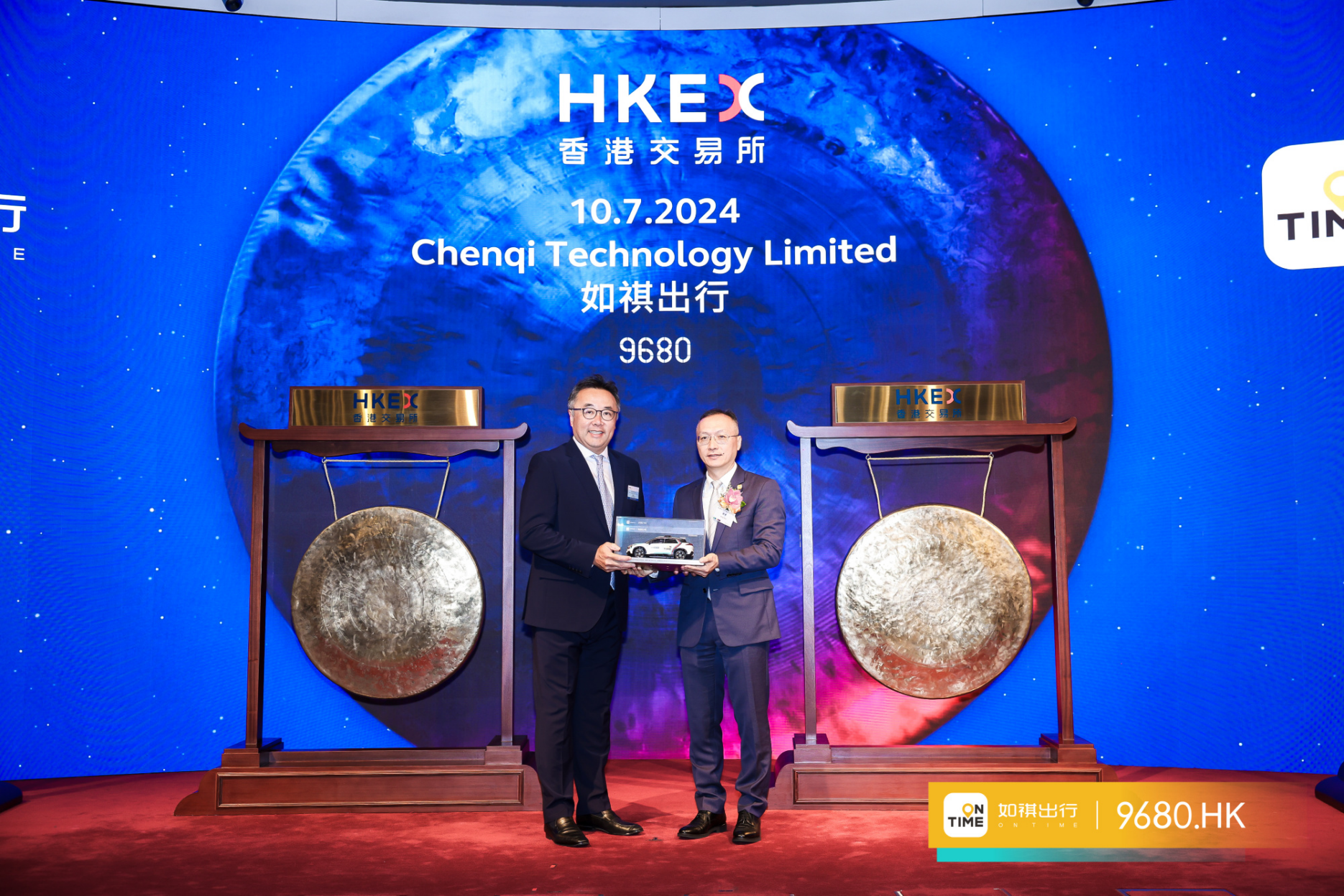Robotaxi, also known as robot taxi, robo-taxi, self-driving taxi, or driverless taxi, is gaining significant popularity in China recently. First up is Guangzhou-based unicorn Ruqi Mobility, which was listed on the Hong Kong Stock Exchange on 10 July, offering a total of 30,048 shares globally, and raising net proceeds of about HK$969.2 million (approx. 124.08 million USD). Second, Baidu’s self-driving travel service platform Apollo Go significantly boosted Baidu’s share price, with Baidu’s Hong Kong shares rising more than 12% yesterday, their highest point in the past month or so.
Founded five years ago, Ruqi Mobility has more than 23 million users of its travel services, as claimed by the general manager of Guangzhou Automobile Group on Weibo. Public information indicates that pre-listed shareholders of Ruqi Mobility consist of Guangzhou Automobile, Tencent Mobility, and others. Having a combined annual growth rate of 46%, its total income in 2023 was 2.16 billion RMB (approx. 0.3 billion USD). Ruqi Mobility started officially developing and commercialising Robotaxi in 2021. The largest proportion of the money raised, according to their prospectus, will be used for research and development activities for autonomous driving and Robotaxi operation services, about 40% of the funds.
Apollo Go is Baidu’s self-driving travel service platform, which has opened manned test operation services in 11 cities and conducted fully unmanned self-driving travel service tests in Beijing, Wuhan, Chongqing, Shenzhen, and Shanghai. In mid-May this year, Baidu’s founder, chairman, and CEO Robin Li disclosed that as of 19 April, the cumulative number of Apollo Go service orders exceeded 6 million. In the first quarter, the proportion of fully unmanned orders in Wuhan exceeded 55% and continued to rise to 70% in April, with an expectation to reach 100% in the coming quarters.
However, Apollo Go and other Robotaxi platforms are under several operational and technical constraints, and public view of Apollo Go is not entirely positive. Under the Weibo topic #Baidu Apollo Go# (with a total of 29.05 million views), netizens have questioned whether the broad acceptance of Apollo Go, and other autonomous vehicles will lead to major unemployment for online car hailing drivers and traditional taxi drivers. With the topic #Official Response to Apollo Go Collision Accident# garnering 38.62 million views, news of Apollo Go colliding with pedestrians on the streets of Wuhan on 7 July attracted vast attention. Regarding the issues brought about by Robotaxi technology, the self-driving company has not answered satisfactorily.
Although self-driving technology faces a lot of controversy, it has not impeded its rapid development. According to Pacific Securities’ forecast, the market size of Robotaxi in China is expected to exceed 1.18 trillion RMB (0.16 trillion USD) and 2.93 trillion RMB (0.4 trillion USD) in 2025 and 2030, respectively, making it one of the largest market spaces for autonomous driving scenarios.
It is worth noting that autonomous driving technology has also received policy support. Beijing intends to support the use of self-driving cars for urban public electric car passenger transport, network car services, car rentals, and other urban travel services. At the World Artificial Intelligence Conference 2024, Shanghai issued the first demonstration licenses for fully unmanned vehicles, allowing four companies to deploy them on select roads in Pudong. The public can book free rides in these driverless taxis via the corresponding software.









